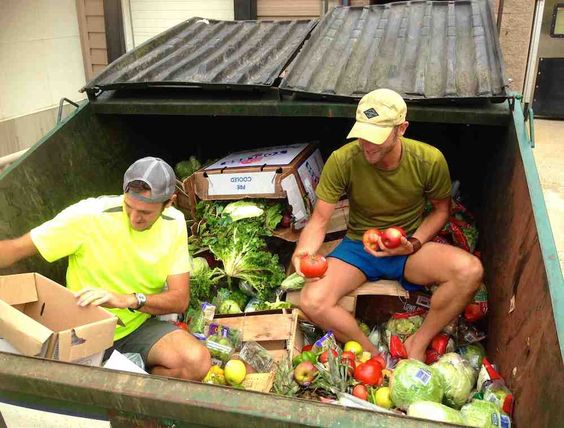In a world grappling with environmental challenges, innovative companies are taking an unconventional approach to fashion by turning food waste into stylish, eco-friendly garments. These visionary enterprises are not just reducing environmental impact but also making a statement in the fashion industry. Let’s explore 12 companies at the forefront of this sustainable fashion movement.
1. EcoChic Couture: Redefining Chic with Citrus Peels
EcoChic Couture leads the way in fashion sustainability by transforming citrus peels into exquisite clothing. The process involves extracting fibers from discarded citrus fruit peels, creating a unique fabric that’s not only eco-friendly but also durable and versatile.
2. Orange Fiber: The Citrus Revolution in Textiles
Orange Fiber has pioneered a technology that extracts cellulose from citrus by-products, converting them into a luxurious fabric suitable for high-end fashion. Their commitment to circular fashion has gained attention, making a strong case for sustainable alternatives in the industry.
3. Piñatex: Pineapples Paving the Way to Ethical Fashion
Derived from pineapple leaves, Piñatex is a sustainable fabric that is making waves in the fashion world. It not only minimizes waste from pineapple cultivation but also provides an ethical and cruelty-free alternative to traditional leather.
4. Agraloop: Closing the Loop on Agricultural Waste
Agraloop tackles the vast issue of agricultural waste by transforming crop residues into sustainable textiles. By converting leftovers into wearable fabrics, Agraloop contributes to reducing the environmental footprint of the fashion industry.
5. Texfelt: Brewing Sustainable Textiles from Coffee Grounds
Texfelt has found an innovative way to repurpose coffee grounds into sustainable textiles. The result is a unique blend that not only reduces waste but also offers insulation and moisture-wicking properties, making it ideal for various clothing applications.
6. Recover: Fashioning Cotton from Recycled Materials
Recover specializes in upcycling discarded cotton scraps into new, high-quality textiles. Their closed-loop production process minimizes the need for virgin cotton, reducing water and energy consumption while promoting a circular economy in the fashion sector.
7. Bolt Threads: The Future of Fashion with Mushroom Leather
Bolt Threads is revolutionizing the fashion landscape by creating Mylo, a sustainable leather alternative derived from mycelium, the root structure of mushrooms. This cruelty-free material offers a high-quality and environmentally friendly option for fashion enthusiasts.
8. Fruitleather Rotterdam: Turning Excess Fruit into Stylish Leather
Fruitleather Rotterdam is pioneering the concept of “fruit-leather,” utilizing excess fruits that would otherwise go to waste. By transforming fruit waste into a durable and stylish leather substitute, they contribute to both environmental conservation and fashion innovation.
9. Bionic Yarn: Ocean Plastic Reinventing Fashion
Bionic Yarn focuses on addressing the plastic pollution crisis by creating yarn from recycled ocean plastic. Their commitment to sustainability and marine conservation is reflected in their fashion collaborations, turning waste from oceans into stylish and eco-conscious apparel.
10. Worn Again Technologies: Circular Fashion Redefined
Worn Again Technologies is on a mission to create a circular resource model for textiles. By utilizing advanced recycling technologies, they can extract and regenerate polyester and cotton fibers from old clothing, reducing the need for virgin materials in the fashion supply chain.
11. Qmilk: A Dairy Alternative for Sustainable Textiles
Qmilk has found an innovative use for excess milk that would otherwise be discarded. By processing milk protein into a fiber that rivals silk in texture, Qmilk offers a sustainable alternative to traditional textiles, promoting ethical and eco-friendly fashion choices.
12. S.Café: Brewing Coffee Grounds into Sustainable Sportswear
S.Café has harnessed the power of coffee grounds to create sustainable and high-performance fabrics for sportswear. The process not only repurposes coffee waste but also results in clothing with natural odor control and UV protection, making it a favorite among environmentally conscious athletes.
Conclusion: Shaping a Greener Future, One Garment at a Time
These 12 companies are at the forefront of a transformative movement in the fashion industry, proving that sustainability and style can go hand in hand. By turning food waste into fashion statements, they are not only reducing the environmental impact of clothing production but also inspiring a shift towards a more conscious and ethical approach to fashion. As consumers increasingly demand eco-friendly options, these innovative companies are leading the way to a greener and more sustainable future for the world of fashion.

d3myh9